Exclusive: Scott Snyder and Nick Dragotta tell Den of Geek about the joys of their big, brutal Absolute Batman and what he represents for the next era of Dark Knight stories.

When superhero fans saw the hulking, massive new version of the Dark Knight that appears in DC Comics’ upcoming comic book series Absolute Batman, they immediately pinpointed writer Scott Snyder‘s pop culture inspiration.
“I love Lego Batman, dearly,” Snyder admits to Den of Geek over Zoom in an interview alongside artist Nick Dragotta. “It speaks to how I think of Batman. For a lot of superheroes, their default position is kind of down. They start from a place that’s relatable in terms of insecurity or worry, like Peter Parker. Bruce starts on the other end, where he’s just like, ‘Of course I can do this!’ And it’s really fun, because he’s always that.”
Okay, maybe it isn’t so clear how a goofy comedy like The Lego Batman Movie relates to Absolute Batman, which is from Snyder and Dragotta, with colors by Frank Martin and letters from Clayton Cowles. Part of DC Comics‘ new Absolute line of books, which offers all-new and radically different interpretations of familiar characters, Absolute Batman features a giant, muscular Bruce Wayne, who is not the scion of a wealthy family but a poor kid who grew up in Crime Alley. He joins forces with Alfred Pennyworth, here an international mercenary who returns to Gotham on a secret mission.
In other words, this is a complete reinvention of Batman for a new generation of readers. Not the tony crimefighter of the 1930s, but a rough and tumble underdog who sees chaos, not order, as a way to deliver justice.
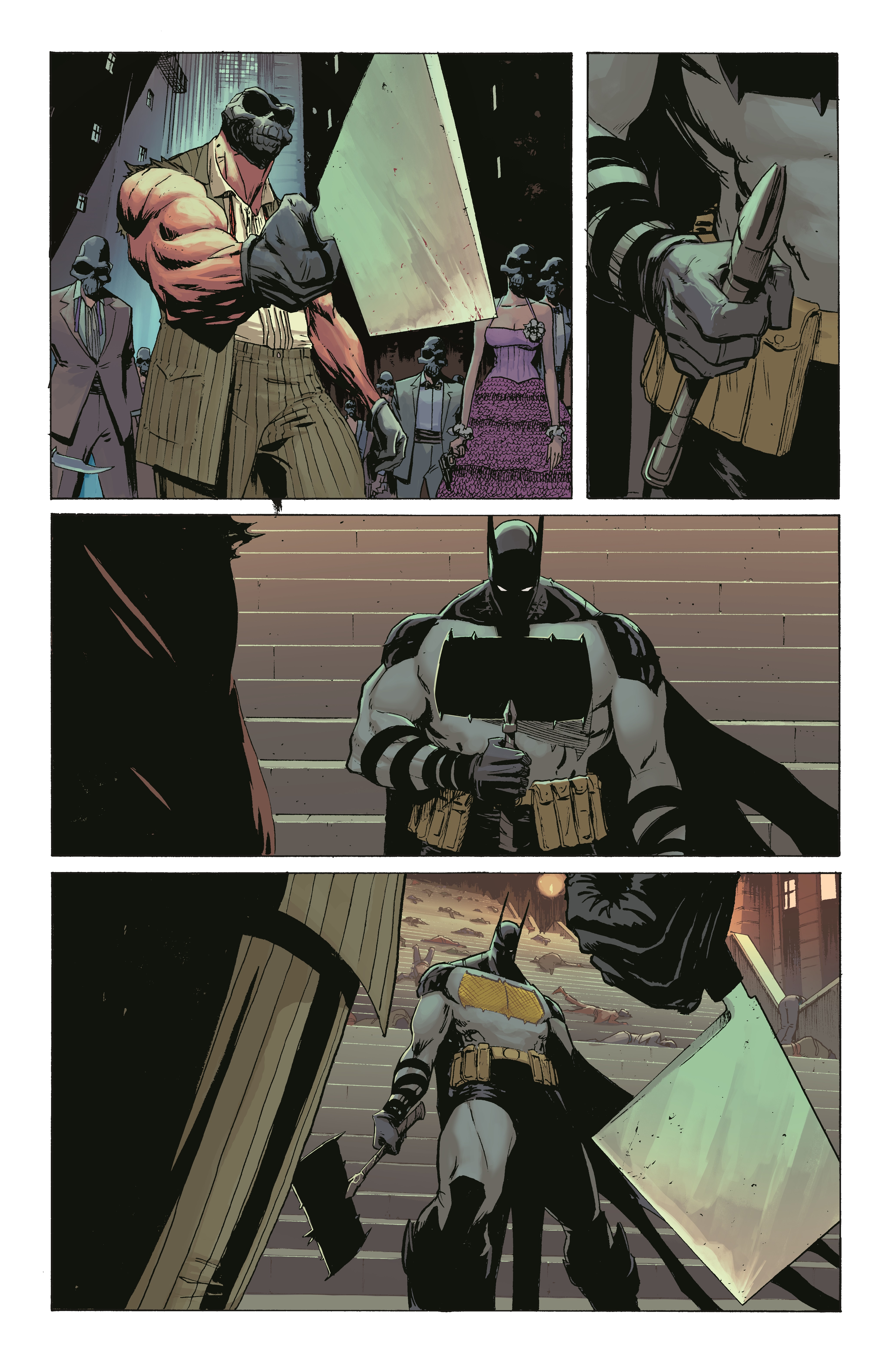
Absolute Unit
Befitting his hardscrabble upbringing, Absolute Batman is brutal. In the opening arc, the Dark Knight battles a sadistic gang called the Animal Party. But, as with the Lego Batman, Snyder sees “a humor” in this new version of the character. “You push him down, and he comes back up with a feeling of ‘I got this.’”
But Batman’s confidence isn’t just something to laugh about for Snyder. “That humor almost belies a more poignant truth that Bruce exists at his core to make us brave in the face of our fears. He has this nightmarish thing happen to him, and then he goes at that thing every single night. He goes at it over and over again.”
As different as Absolute Batman seems on the surface, Snyder’s drawing from the central concepts that have always defined the character. “At his core, Batman is a really simple construction,” Snyder explains. “He’s just a kid who has this terrible thing happen to him, the worst thing that can happen to a kid. And then instead of curling up in a ball or instead of becoming hopeless, he uses it as fuel to become a pinnacle of achievement and somebody who dedicates his whole life to making sure that won’t happen again… Beyond that, everything else is window dressing.”
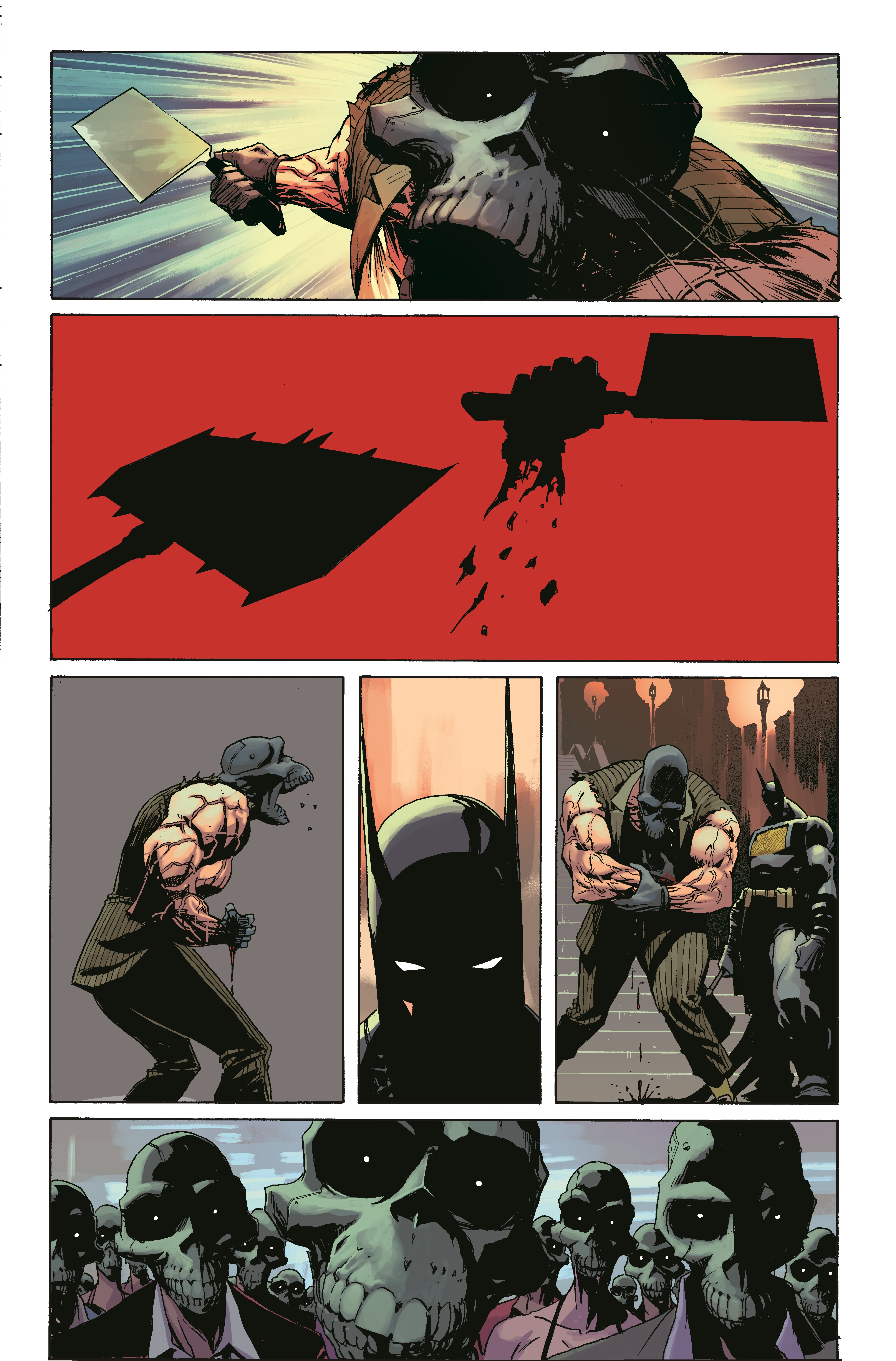
Dragotta took a similar approach when designing the look of Absolute Batman. “I’m beholden to the nostalgia of Batman,” he admits, which drove some of the essentials in his take. “You need the ears, you need the cowl, you need that silhouette. You want readers to recognize this is Batman.”
But without the extravagances of a life among the rich and famous, this Batman thinks differently about his suit. “When we set out, I wrote on the design sheet, ‘he’s not new in look, he’s new in function,’” Dragotta recalls. “Instead of the utility belt, this will be the utility cowl, the utility suit.”
For example, this Batman can use the Bat symbol on his chest to make an ax. No, this Batman isn’t opposed to dismemberment as a crime-fighting strategy…
Dragotta starts to say that he and Snyder are making a different Bruce, but then he stops himself. “It’s funny to say that because it’s not, though. It’s just his circumstances are different. At the core, he’s still a genius. He’s still a problem solver. Ours is maybe more of a do-it-yourselfer, who pulls his sleeves up and gets the job done.”
And what big sleeves they are. Give or take an Adam West, Batman has always been built. But the Absolute Batman is, well, an absolute unit, a tank of a man on par with Colossus of the X-Men and other comic book heavy hitters.
“Scott really pushed me to go bigger,” Dragotta laughs. “And I’m like, ‘Scott… we’re getting pretty big here.’ And he just said, ‘Trust me,’ and I did. Having all that trust and all of Scott’s knowledge to lean on is awesome. Because I can try the wildest shit and ask Scott, ‘Would this work?’ Creatively, it’s been awesome.”
But once again, every time Dragotta and Snyder start talking about their wild new take on Batman, they find themselves stopping and reconsidering. “When I see it, it’s just Batman to me,” Dragotta says.
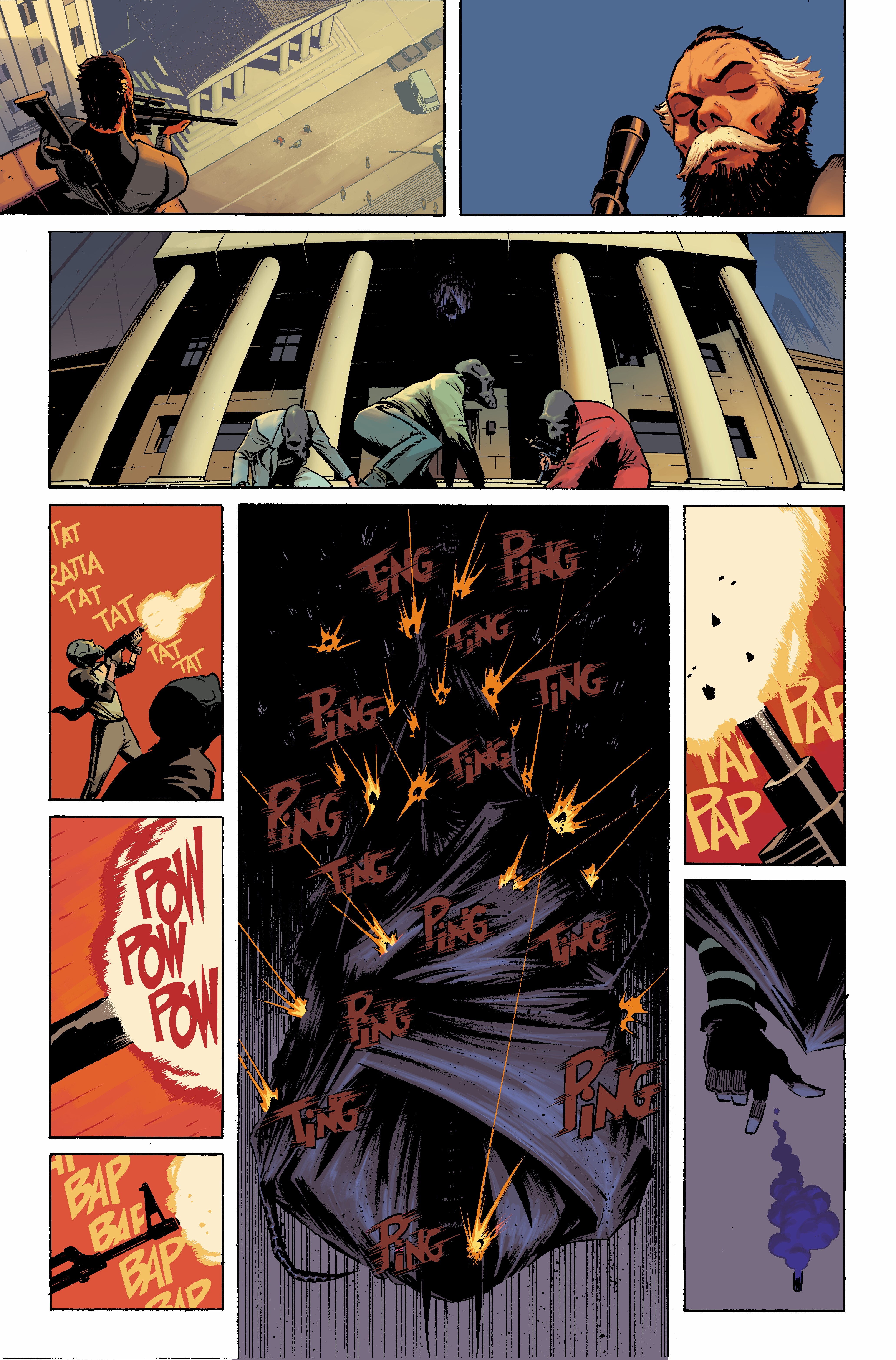
Absolute Fundamentals
Which raises a question. If this is still Batman, despite the size and without the money, what’s the point? Why even try to reboot Batman with a new line? As Snyder admits, these reinventions have been done before, often with him at the fore, as in DC’s New 52 era, in which Snyder once turned Batman into a giant robot operated by Commissioner Gordon, or the more adult Black Label books such as Batman: Last Night on Earth. By their own admission, Snyder and Dragotta have taken some big swings on Batman in the past and have never been told no. So what’s so different about Absolute Batman?
“Who would Batman be today, if you could start him from scratch, what would he be?” Snyder asked himself when beginning the project. “And if the priority is to take the scariest thing that could happen to you and turn that into fuel to change the world and nothing else is sacred, then I look at my kids. They look out and see a world against regular people, who don’t have a billion dollars. So Batman shouldn’t be a generational billionaire—they seem to be the ones that are causing more problems than solving them. He should be somebody who comes up with very little, but just believes in himself to a degree that’s basically insane.”
By shifting Batman from blue blood to blue collar, Snyder and Dragotta change not just Bruce Wayne but Gotham City itself. “Batman’s the small bit of chaos or anarch in this world and the villains are order, and that reversal just opened everything up,” says Snyder.
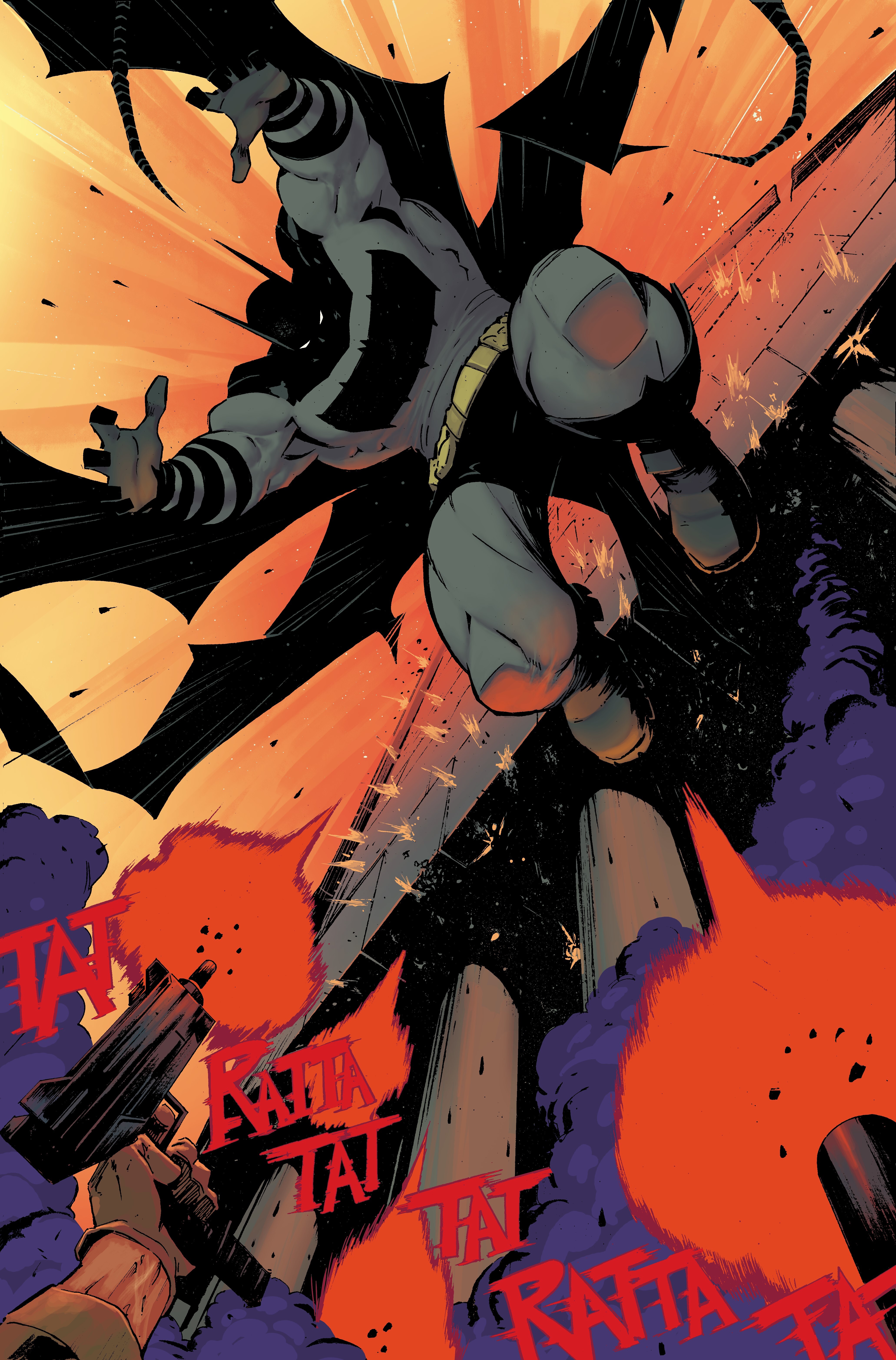
“I’m a big theme guy,” Dragotta adds. “We started with Bruce and this large Batman, which inspired me to go very chunky with the city. I want it to feel heavy, I want it to feel geometric. And I want it to feel imposing and large and have lots of depth. When you walk the streets in New York, it just seems like the skyscrapers never end. When we do pull out shots and establish the city, I want to get across the depth and all the different pockets in it.”
That sense of heaviness pervades Absolute Batman, but is perhaps best represented by Dragotta’s redesign of the iconic Bat logo. In place of the more curved look, with points to indicate the wings and ears of a bat, this new logo is a solid black mass, a rectangle painted across Batman’s chest with only the hints of points.
“I feel like it’s about to burst,” Dragotta says. “That’s very much our Bruce, with a Bat-symbol that can barely contain itself, like it’s going to explode.”
“But it’s also a utility,” he continues. “It’s a tool that he uses. When you see it, you’ll get it. It can’t be this little baroque, fancy symbol because that wouldn’t fit the character. Maybe in 15 issues from now, he’ll go to art school and design a new logo, but that’s not our Bruce. He’s not concerned with branding yet.”
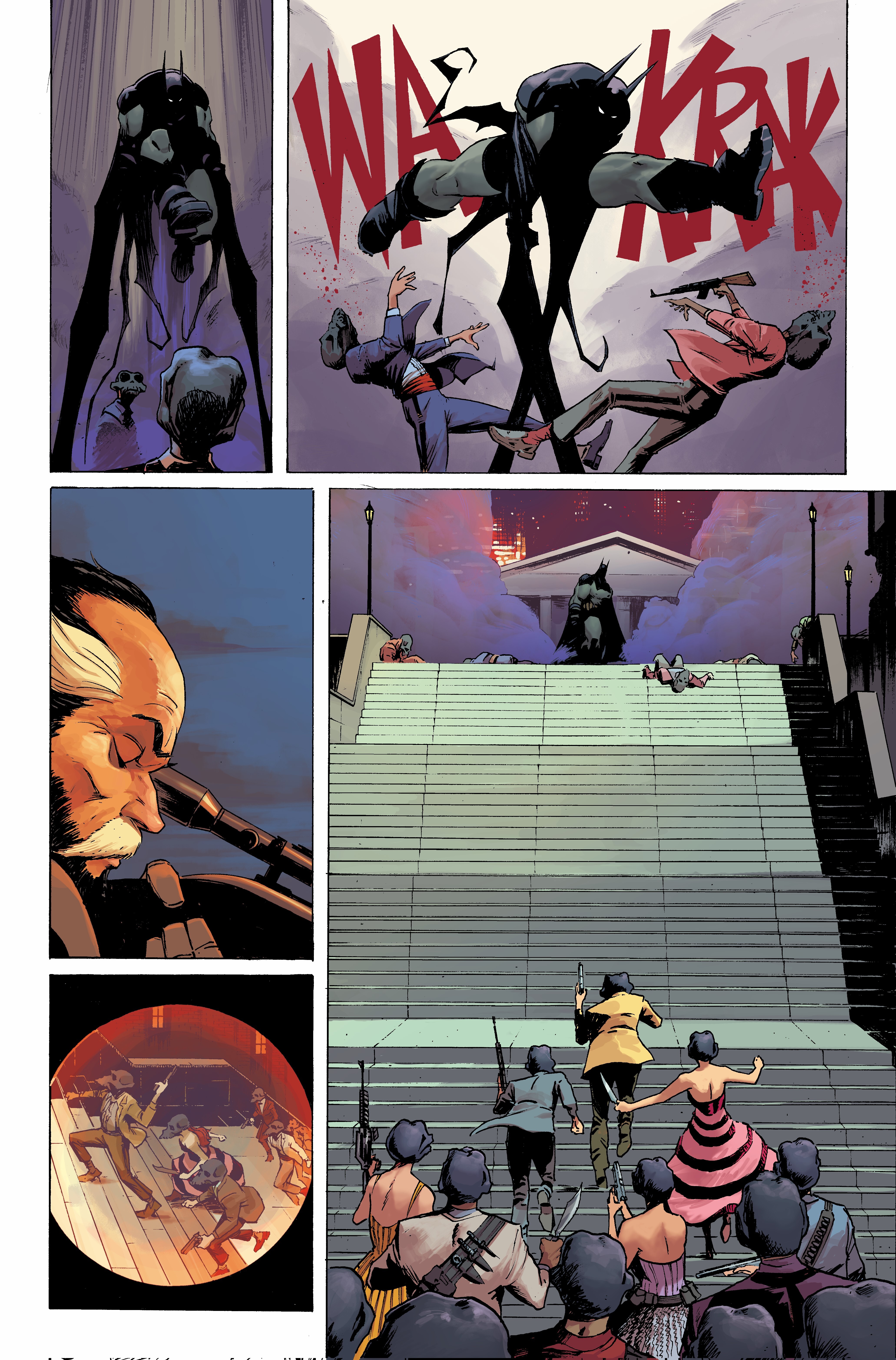
Absolute Joy
Like Bruce’s Reacher-esque body style and everything else about Absolute Batman, the block logo has generated a lot of buzz online, not all of it positive. And that’s just fine with the creators.
“I love the conversation around it,” Snyder says. “I love the hype, I love people hating it.” In fact, Snyder goes so far as to say that it will become a fan favorite. “I guarantee you those shirts will sell out at New York Comic-Con with that logo.” While part of his excitement comes from just the joy of people spoofing the logo online—Snyder specifically mentions a Spider-Man variation he saw someone make—it also comes from his passion for the project in particular. “I believe in the story. When people read it, they’re going to get it.”
That same sentiment extends to the villains, who have also undergone a massive change in the Absolute Universe. “One of the things that I love about this Bruce is that he grows up in Crime Alley, so he’s friends with all these guys coming up. There’s real history and affection between him and Oswald, Harvey Dent, Edward Nygma, and Selina Kyle. They all know each other from the neighborhood.”
“I love Waylon, Killer Crock,” Dragotta says. “He feels like a real revelation.”
Of course, both men know that fans online might reject these revelations about the Bat-rogues, causing all manner of internet debate, just like the logo and Batman’s physique. And that’s just great to Snyder and Dragotta.
“I believe in what we’re doing creatively,” Dragotta says. “I know that people will get it when they read it. I’m really happy with where it’s at, and I want people to question it, because I feel really good about the story.”
Snyder concurs: “I love it. It’s a conversation. Because, like Nick said, it’s perfect for our story.”
A radical Batman who happily brutalizes cruel villains is undoubtedly a big swing, especially for Snyder, who spent years writing a more traditional (and hopeful) Caped Crusader during the New 52 era. But for all its darkness and violence, the creators insist that Absolute Batman is a joyful book.
“Batman jumps up on his cape and fights people and he throws his batarang ears, and I just think he’s really funny,” Snyder sayss. “He makes a couple jokes in the first issue. Not ‘ha-ha’ jokes, but ‘Oh, man, he’s tough’ jokes.”
Both Snyder and Dragotta attribute that joy and confidence and energy not just to their faith in the story, but to the optimism of the next generation of readers, who look at a world stacked against them and still find hope. This is a book for them.